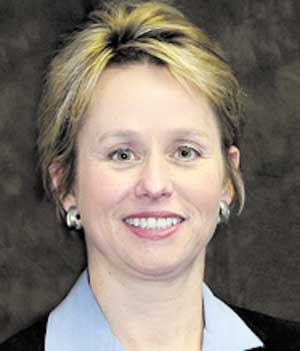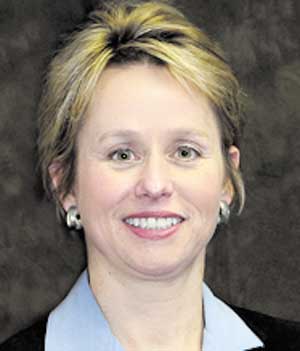TPIF offers LGBT community a new way to donate

Tammye Nash | Managing Editor
With the 35th annual Black Tie Dinner on the horizon, people know what that event is. They know that it raises money for the Human Rights Campaign Foundation and for a variety of local LGBT- and AIDS-related nonprofits. And so, through the years, when people started looking for a worthy organization to name as a beneficiary of their wills, they thought of Black Tie.
But as former Black Tie board member Judy Sherman noted this week, Black Tie was never intended or set up to take in those kinds of donations. But now there’s a new organization that is able to take those donations, and to also help LGBT and allied philanthropists put their charitable dollars to their best use.
It’s called the Texas Pride Impact Fund, and it’s just getting ready to launch its first major, statewide effort.
For years, Sherman said this week, Black Tie has been “getting requests to do more than the charter allowed” the organization to do.
“Black Tie has gotten a number of requests through the years to serve as the beneficiary of someone’s will,” or to act as a donor-advised fund for large donations.
But that’s not the way Black Tie is set up. “Every thing Black Tie brings in in a given year they have to give out that year to their beneficiaries,” Sherman explained. She noted that several BTD committee members in 2013 started to explore the questions of “if and how Black Tie Dinner could evolve to serve these broader philanthropic needs.”
Consensus was, she said, that “Black Tie Dinner needs to continue to do what they do best,” while this new group developed a way to fill another niche. “We recognized the need and started talking about how we could fill it,” Sherman said.
In 2014, a group of 10 came together to form a steering committee that has since created the Texas Pride Impact Fund, a new nonprofit focused on “secur[ing] the future for LGBTQ Texans by inspiring giving and investment to expand opportunities and enrich our communities,” according to the TPIF mission statement.
Sherman said the steering committee — consisting of herself, Laurie Foley, Ron Guillard, Eric Johnson, Michael Kaufman, Linda Moore, Mark Parker, David Taffet, Roger Wedell and Philip Wier — has spent the last couple of years putting this new 501(c)3 nonprofit together “to serve as a statewide initiative for LGBT philanthropy.” They have formed regional teams — centered primarily in the state’s major metropolitan areas so far — and these teams have worked to “get people to think of TPIF when it comes to planning their annual giving or making bequests in their estates,” she said.
“As one of the guys working on this said, ‘I just finally got so sick of seeing these high-net-worth gay men giving all their money to their alma maters, I just felt like throwing up,’” Sherman added. “And that’s the thing, there are some really, really wealthy gay and lesbian people out there with no children, no family to leave their estate to. We want to give them an option, a way to leave that money where it can do the most good for the LGBT community.”
TPIF is not intended to provide programs and services to individuals. It’s purpose is to provide the necessary funding to those organizations that create and provide those programs and services.
“Somebody asked me,” Sherman said, “what’s the difference between giving to TPID and to, say, Resource Center. The way I explained it is, Resource Center is one very large and very significant slice of the pie here in Texas. Our job at TPIF is to enlarge the pie, to bring in more donors that are able to support Resource Center and support other agencies and services and projects.
“The way I explain it,” she added, “is that I want TPIF to be the face of gay philanthropy in Texas, the way the Human Rights Campaign is the face of political activism. We have the infrastructure in place now to administer and manage fundraising, but the effort will certainly continue to evolve.”
So far, Sherman said, TPIF committee and board members have focused on “quietly launching” the organization with “soft events in people’s homes around the state, bringing groups of people together and talking to them one-on-one to explain what we are doing and how they can help.”
But as of Aug. 1, she said, TPIF has received the funding to launch its first big, statewide effort: a needs assessment to determine exactly what the issues are that need to be addressed, and how best to do so.
“We don’t want to assume we are in any position to address the issues, without first determining exactly what the issues are, without prioritizing those issues and having a good handle on the depth and breadth of the need,” Sherman said.
“We know millennials think of their needs within the LGBTQ community very differently than do the 8,000-plus LGBTQ seniors who cross that age 65 threshhold each year. So we are doing a comprehensive assessment to inform our grant making and help us leverage the resources that exist today across the state to they can be directed towards the needs that are out there.”
TPIF board members expect to complete the needs assessment in the second half of this year and to award its first grants in 2017. The funding for those early grants, they said, will come “from major donors and individual gifts” that are being solicited.
TPIF board officers are Sherman, Guillard and Wedell. Foley and David W. Carlson are the DFW regional leaders, and Guillard, April Ayers, Victor Kendall and Dr. Rolando Maldonado are the Houston regional leaders.
To get involved as a volunteer or for more information, email info@TxPIF.org or visit TxPIF.org.
This article appeared in the Dallas Voice print edition August 5, 2016.

